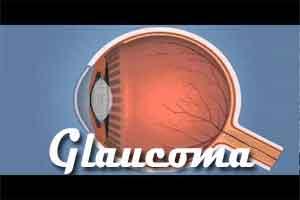- Home
- Editorial
- News
- Practice Guidelines
- Anesthesiology Guidelines
- Cancer Guidelines
- Cardiac Sciences Guidelines
- Critical Care Guidelines
- Dentistry Guidelines
- Dermatology Guidelines
- Diabetes and Endo Guidelines
- Diagnostics Guidelines
- ENT Guidelines
- Featured Practice Guidelines
- Gastroenterology Guidelines
- Geriatrics Guidelines
- Medicine Guidelines
- Nephrology Guidelines
- Neurosciences Guidelines
- Obs and Gynae Guidelines
- Ophthalmology Guidelines
- Orthopaedics Guidelines
- Paediatrics Guidelines
- Psychiatry Guidelines
- Pulmonology Guidelines
- Radiology Guidelines
- Surgery Guidelines
- Urology Guidelines
Sleep apnea patients prone to suffer from glaucoma : study

Scientists at Hokkaido University have successfully measured the eye pressure of sleeping patients with obstructive sleep apnea syndrome for the first time, finding an unexpected correlation with glaucoma.
Glaucoma is thought to be a disease in which the optic nerve sustains damage due to increased eye pressure, resulting in a restricted visual field. In addition to strokes and cardiovascular disease such as heart attacks, people with obstructive sleep apnea syndrome (OSAS) are prone to suffer from glaucoma at a rate about 10 times higher than non-OSAS sufferers.
However, it has been technically difficult to continuously measure eye pressure in sleeping subjects. To address the problem, the team employed a special sensor akin to a contact lens to monitor pressure changes when OSAS patients’ breathing repeatedly stopped during sleep.
Normally, intrathoracic pressure is known to rise if people stop breathing (exhaling), resulting in higher eye pressure. The study found unexpectedly that the eye pressure dropped when subjects stopped breathing. The subjects tended to stop inhaling, not exhaling, due to airway closure, which should lead to lower intrathoracic pressure. The subjects also experienced hypoxic effects, as cessations in breathing cause blood oxygen saturation levels to drop, possibly triggering optic nerve damage that can lead to glaucoma.
The study shows that the optic nerve could be damaged due to hypoxia without a spike in eye pressure, a finding that could help unravel the details of glaucoma sufferers with normal eye pressure levels.

Disclaimer: This site is primarily intended for healthcare professionals. Any content/information on this website does not replace the advice of medical and/or health professionals and should not be construed as medical/diagnostic advice/endorsement or prescription. Use of this site is subject to our terms of use, privacy policy, advertisement policy. © 2020 Minerva Medical Treatment Pvt Ltd